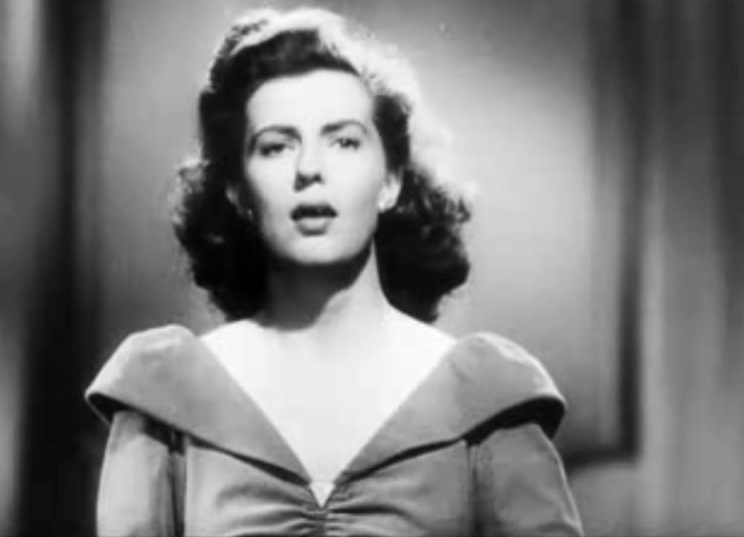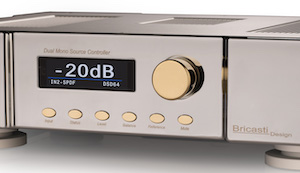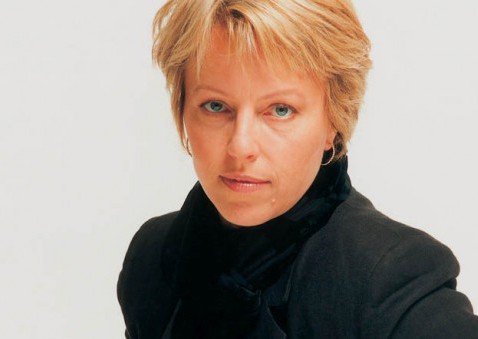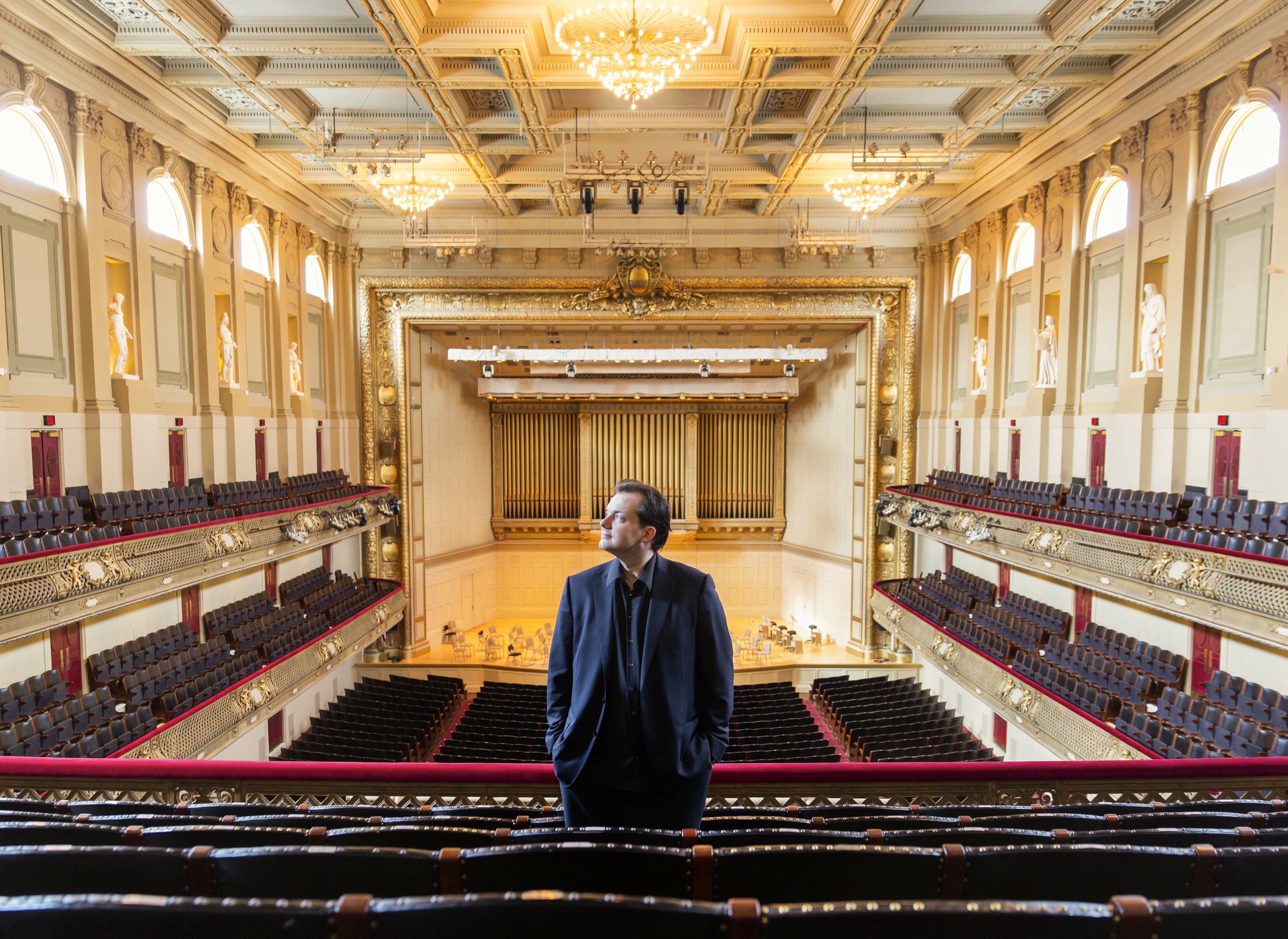
Month: September 2019
George Benson: “The Other Side of Abbey Road”
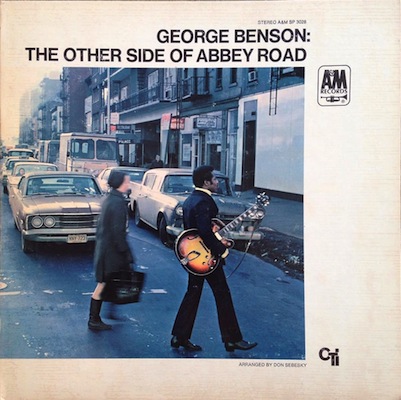
The Beatles’ final studio album Abbey Road was released on LP in the United States on September 26, 1969. As will be discussed after the jump, audio-industry maven Philip O’Hanlon has pulled together (under the “Magnum Opus Rediscovered” banner) a coast-to-coast Abbey Road “listening party” for Saturday, September 28, 2019, in which 40 audio dealers will play the remastered album on “fine audio” (or “high end”) equipment, from 3:00 to 6:00 PM (local times).
Which is all fine and good. But I for one wish that the participating audio shops would extend the duration of their events by not all that much time (32 minutes), and spin what is to my mind, far and away, the best Abbey Road cover album ever, George Benson‘s woefully under-appreciated The Other Side of Abbey Road. Will they, won’t they? Matters not. It’s easy to add this gem to your collection!
Starting only three weeks after Abbey Road‘s US début (October 22-23 & November 4-5, 1969), producer Creed Taylor (who produced this record for Herb Alpert’s label A&M) convened a rather astonishing gathering of participating musicians at engineer Rudy van Gelder’s legendary studio. Don Sebesky was in charge of their comings and goings, in that he was the arranger. (Benson sang, as well as playing guitar.)
How’s this for an (incomplete) lineup? Ray Barretto, Ron Carter, Herbie Hancock, Freddie Hubbard, Bob James, Hubert Laws, Idris Muhammad, George Ricci (brother of Ruggiero Ricci), and Emanuel Vardi? More information (and sound samples) after the jump. Continue Reading →
Rick Beato: A Musical and Audio Analysis of Boston’s “More Than a Feeling”
Through Arturo Delmoni, I got to know Boris Goldovsky (1908-2001). I treasured our get-togethers and phone chats (and I also did some intellectual-property legal work for him). Although our acquaintance was, by most measures, rather fleeting, the time I spent with Mr. Goldovsky had an outsized effect on me. Just to shake hands with someone who, as a child, had fled Moscow with his mother during the October Revolution… . To say nothing of the fact that, before his small-‘e’ evangelical endeavors had had the result that, in the United States, his name would be inextricably intertwined with the concept of “Opera,” the young Boris Goldovsky’s piano teacher in Berlin had been Artur Schnabel.
Therefore, through Schnabel’s teacher Theodor Leschetizky, there are, in total, only four people shaking hands between Beethoven and me. (That’s because Leschetizky’s teacher Carl Czerny had been a student of Beethoven’s. So, the handshake chain goes: John Marks-(1) Mr. Goldovsky-(2) Schnabel-(3) Leschetizky-(4) Czerny-Beethoven.) And, not to lay it on too thick, but: the young Leschetizky’s concerto-début performance was conducted by… Mozart’s son.
Mr. Goldovsky’s claim to widespread fame (as distinct from his reputation among opera cognoscenti) was his intermission feature during the Saturday-afternoon live radio broadcasts of the Metropolitan Opera, which were sponsored by Texaco, the gasoline company. (He also hosted the “Opera Quiz” feature for a time.) Mr. Goldovsky would sit at the piano (a Knabe in a rehearsal room, which always made me well-disposed to that maker) and give a live “Musical and Dramatic Analysis of (the name of that Saturday’s opera).” Those features were brilliant, as well as witty. As examples, here he is on the operas Esclarmonde and Lulu.
I will never forget Mr. G’s quip that, for all his musical creativity, Wagner seemed not to have a clue about population genetics (a reference to the brother-sister twins Sieglinde and Siegmund’s being the incestuous parents of Siegfried). I think it fair to say that the consensus is that Mr. Goldovsky played a major role (and perhaps the major role) in making live performances of grand opera both comprehensible to and aspirational for the broad middle of American society, from the immediately post-WWII years though the 1980s. Mr. Goldovsky also deserves much credit for championing the cause of a young African-American singer, Robert McFerrin, who became the first African-American man to sing a title role at the Met, in 1955. (Robert McFerrin’s son Robert, Jr. took the professional name Bobby McFerrin.)
Courtesy of Jack Baruth‘s personal blog, I have now become virtually acquainted with Rick Beato (pr. “Bee-ah-to”); and let me say this:
What Mr. Goldovsky was to opera (the authoritative “explainer,” par excellence), Rick Beato is to rock-and-roll.
More, after the jump. Continue Reading →
Boston: “More Than a Feeling”
The rock band Boston’s 1976 breakthrough single, “More Than a Feeling” is a song about listening to a song. Or, more precisely, “More Than a Feeling” is a song about experiencing the cascade of emotions—nostalgia, regret, and longing—set in motion by listening to one specific song.
The “old” song the songwriter has been listening to is… “Walk Away Renée.”
Quel surprise!
The year 1976 was a great year for the stereo business. Thinking about the differences in “the industry” between then and now calls to mind L. P. Hartley’s elegant turn of phrase, “The past is a foreign country; they do things differently there.”
Looking back upon high-fidelity component audio’s market-share peak, Tech Hifi co-founder Sandy Ruby observed, “Electronics retailers felt better about themselves than they should have. In the glory days of audio, we were modestly successful businessmen, buoyed by a tidal wave.”
Before I turn my attention to the song at hand, I want to explore what went into building that tidal wave, so that where “More Than a Feeling” fit into it will make more sense. More, after the jump.
